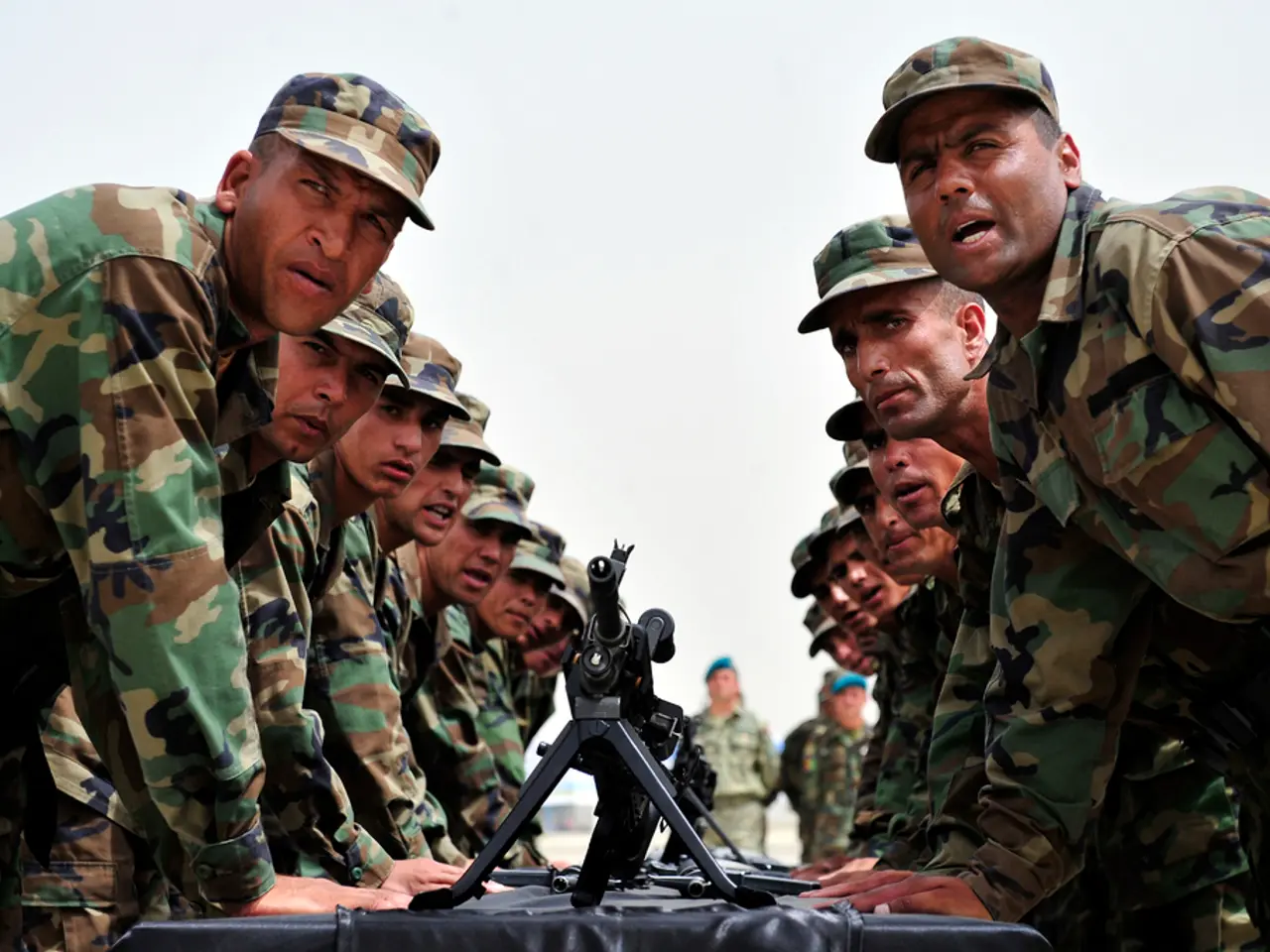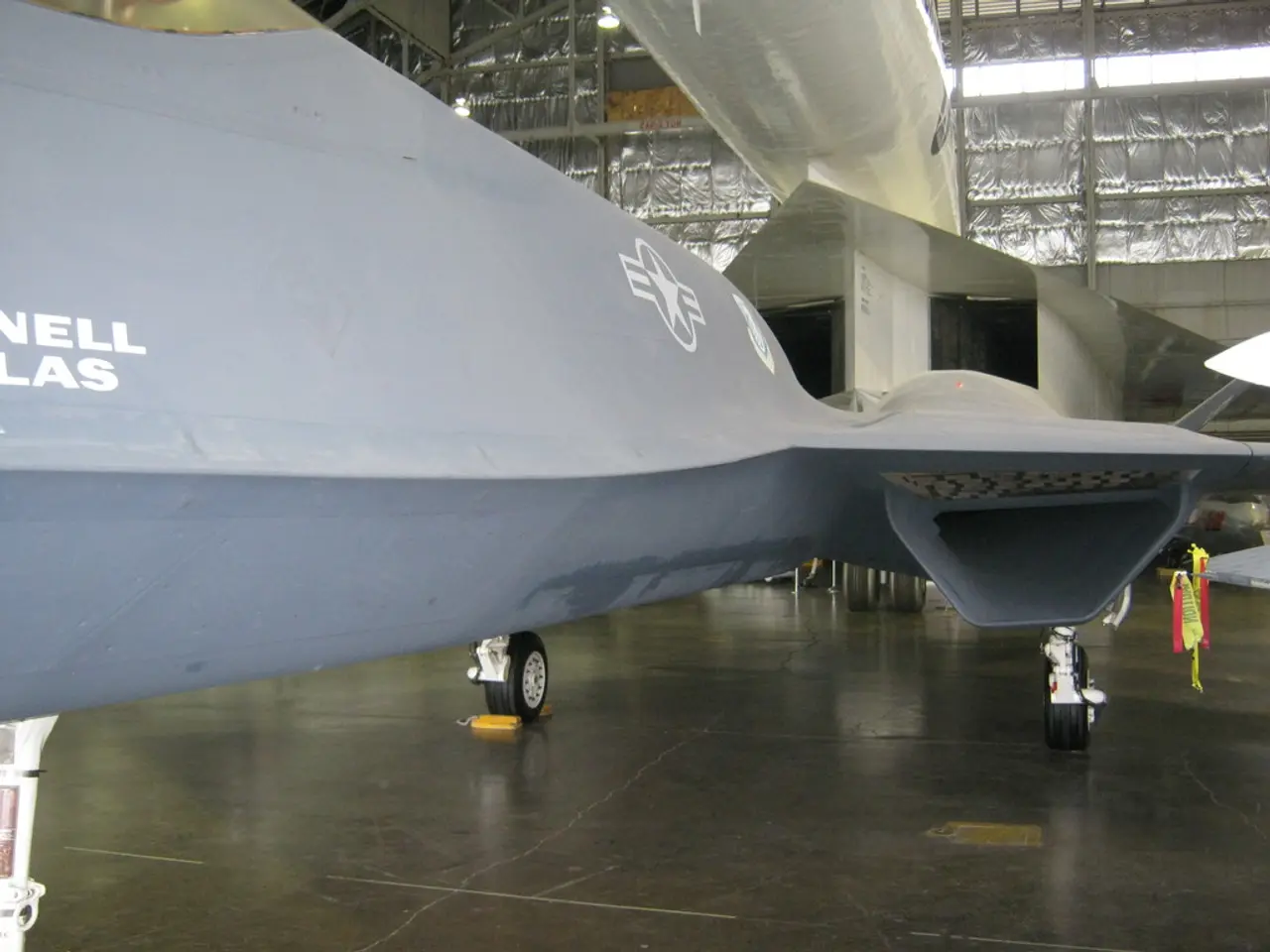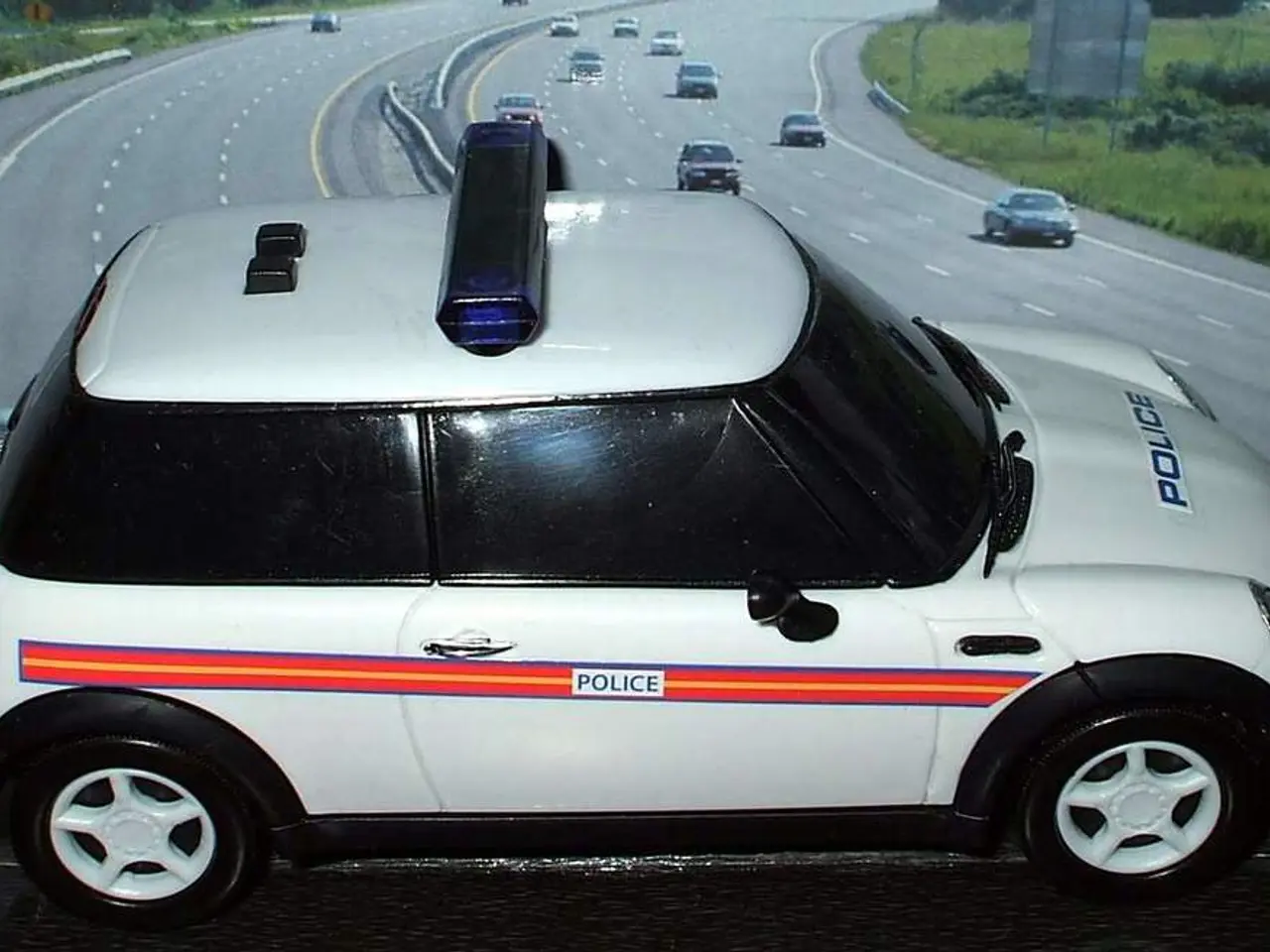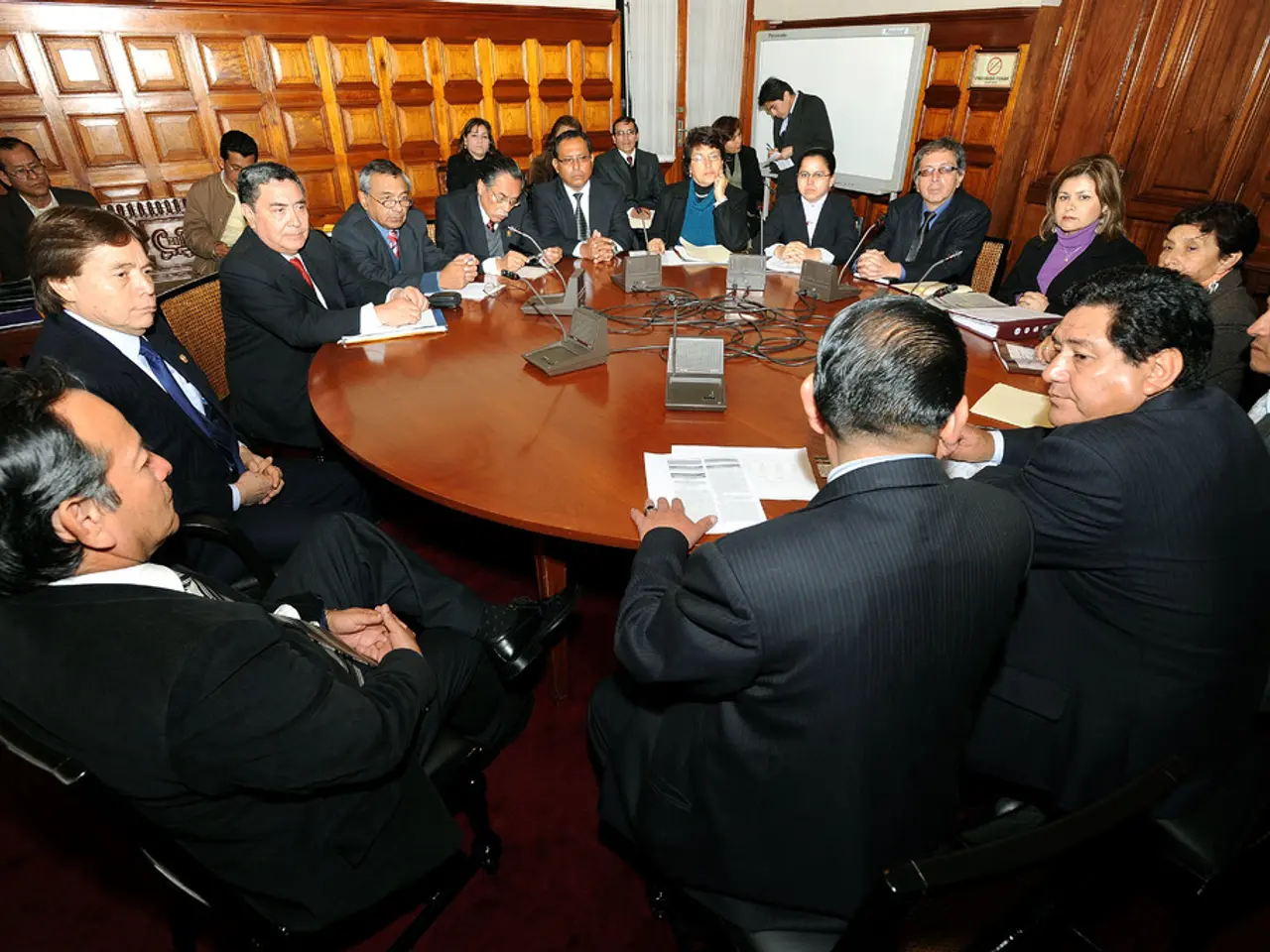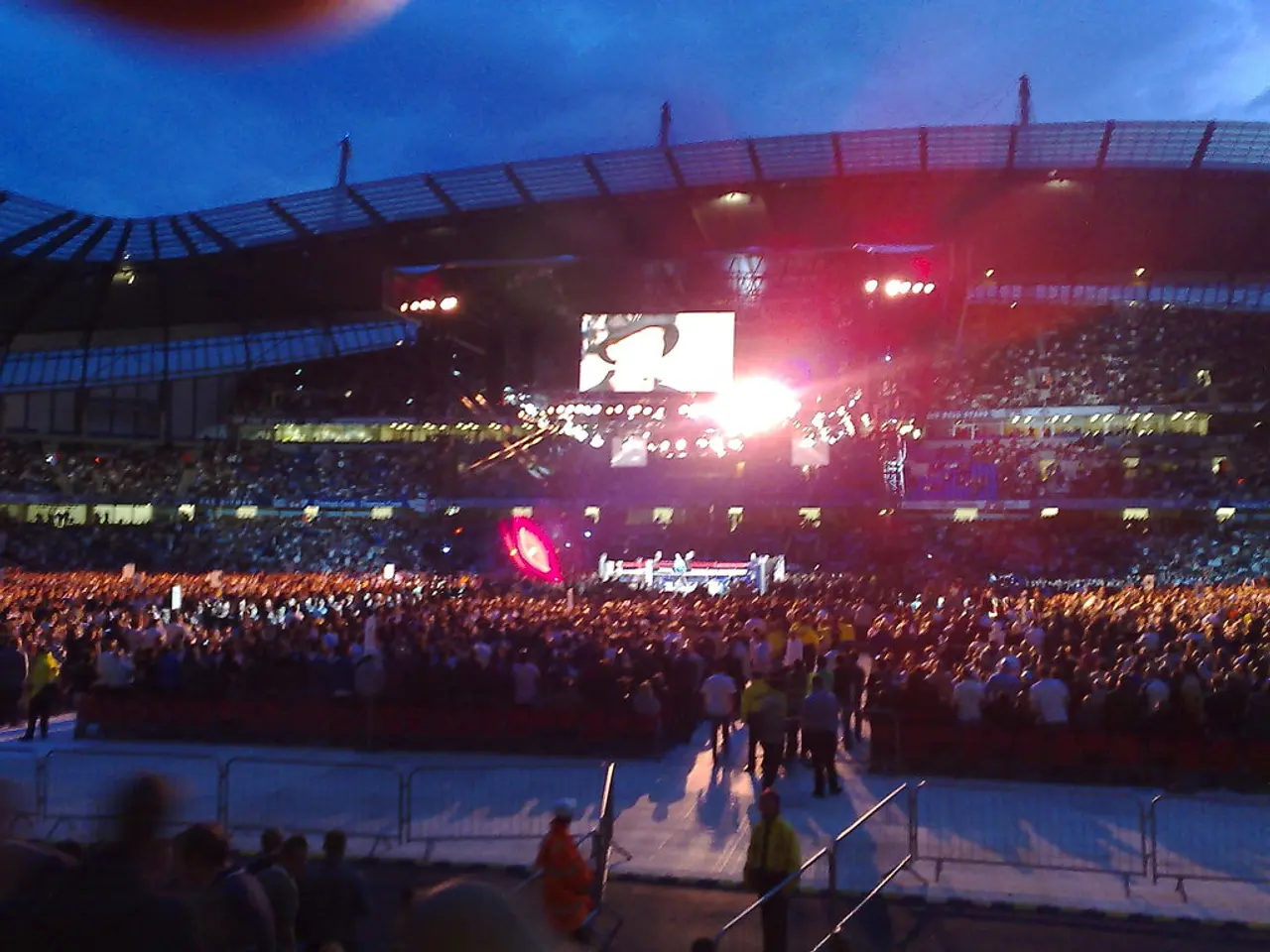Leftover Explosives Pose Ongoing Danger from Israel's Conflict with Lebanon
In the aftermath of the intense conflict between Israel and Hezbollah that erupted in October 2023, a team of munitions disposal experts led by DanChurchAid (DCA) is working tirelessly to make southern Lebanon safer. The team, led by Hussein Jaafar, is currently searching a steep hillside near Ras El Ain for unexploded munitions left over from last year's bombardment.
The painstaking process involves visual inspections, cutting weeds, using a metal detector, and removing detected explosives for disposal. The team carefully scans the area from side to side as they inch forward, wearing cumbersome visors and heavy red protective suits, careful to avoid losing their arms in the event of an explosion.
The clearance operations are based on a variety of databases of suspected contaminated sites, drawing from residents and Unifil, the UN peacekeeping force in southern Lebanon. Before the conflict, DCA's focus was mainly on the Mount Lebanon region. However, the cross-border conflict has led to an estimated 10 to 15 per cent of the high-explosive munitions dropped by Israeli fighter jets not exploding, scattering other explosives from Hezbollah weapons storage depots across civilian areas.
The drive to clear Lebanon of mines and unexploded munitions could be set back by the possible withdrawal of Unifil. Lina Shahine, a DCA team leader, feels that removing a mine, bomb, or anything that could harm others saves a person's life. The entire area has been cordoned off with red and white tape to keep away residents, whose homes are visible at the top of the slope.
The current status of unexploded munitions (UXO) clearance efforts in southern Lebanon is challenging due to the recent conflicts. As of June 2025, Battle Area Clearance (BAC) teams have been actively working in South Lebanon to make communities safer by clearing UXOs, enhancing the security of the region.
However, the recent conflict is likely to delay Lebanon's objectives of being free of unexploded cluster munitions by 2028 and mines by 2030. The Lebanon Mine Action Center (LMAC) has a strategic plan in place to manage mine action responsibilities effectively, developed in 2020 to guide LMAC's efforts in partnership with relevant stakeholders.
Efforts to address the aftermath of the conflict, including UXO clearance, are receiving international support. For example, the European Union has dedicated more than $600 million to areas affected by the conflict, which could support various recovery and clearance initiatives.
Unifil's mandate is up for renewal next month, and Israel and the US have criticized its operations. Organisations like DCA rely on funding, the sources of which are not always stable. Despite these challenges, the ongoing efforts by BAC teams and strategic planning by LMAC are crucial components of these endeavors. International support is essential for addressing these challenges effectively.
- In the realm of general news, the ongoing effort by DanChurchAid (DCA) to make southern Lebanon safer after the war-and-conflicts between Israel and Hezbollah in October 2023, specifically their search for unexploded munitions, is of significant opinion and concern.
- The politics surrounding the peacekeeping force in southern Lebanon, Unifil, have the potential to impact the progress of UXO clearance initiatives, as its mandate is up for renewal next month, a situation that is currently being closely watched.
- The expert team led by Hussein Jaafar from DCA is working diligently to clear unexploded munitions left over from last year's bombardment, a process that is critical in the fight against war-and-conflicts and attaining a safer future for regions like Lebanon.
- In the wake of the recent conflict, Lebanon's initial targets of being free of unexploded cluster munitions by 2028 and mines by 2030, as set by the Lebanon Mine Action Center (LMAC), are now at risk of being delayed due to the increased number of unexploded munitions scattered across civilian areas.
